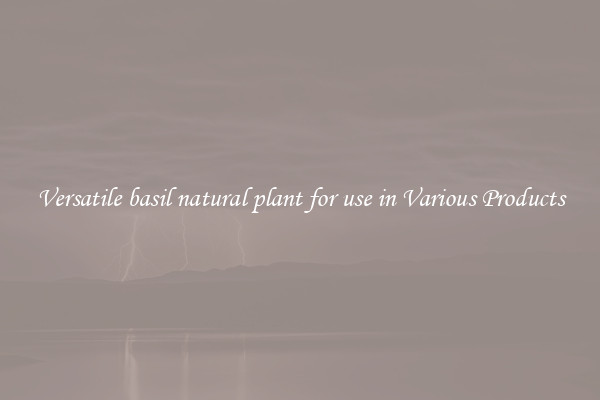Versatile brassica oleracea var for use in Various Products
Versatile Brassica oleracea var: A Jack-of-all-Trades in Various Product Industries

Brassica oleracea var, commonly known as kale or Brassica oleracea var acephala, is a highly versatile plant that has been used for centuries in various products. This leafy green vegetable belongs to the cabbage family and is packed with essential nutrients, making it a desirable ingredient in different industries ranging from culinary to cosmetic.
In the culinary world, kale has gained immense popularity due to its distinct flavor and health benefits. It can be incorporated into a wide range of recipes, from salads to smoothies, stir-fries, and soups. Its versatility is evident in its ability to be cooked, steamed, or even eaten raw, providing chefs with countless possibilities. Kale is high in fiber, vitamins A, C, and K, as well as minerals like calcium and iron. Its nutritional profile has earned it the title of a superfood, making it a preferred choice for health-conscious consumers.
Kale's versatility extends beyond the kitchen, as it has found its way into the cosmetic industry as well. Its antioxidant properties make it an excellent addition to skincare products. The plant's leaves are rich in vitamins and minerals that promote healthy skin, such as vitamins B and E. These nutrients help rejuvenate the skin, reducing signs of aging and promoting a youthful appearance. Kale extract is often used in face creams, serums, and masks, contributing to the growing natural skincare trend.
In addition to its culinary and cosmetic applications, Brassica oleracea var has also been utilized in the textile industry. The leaves of this plant are rich in cellulose, making them suitable for manufacturing sustainable fabrics. By extracting fibers from kale leaves, a bio-based alternative to synthetic fibers can be created. This eco-friendly textile material shows promising results in terms of reducing pollution and carbon emissions associated with conventional textile production.
Moreover, kale has proven to be a reliable biofuel source due to its high oil content. Several studies have explored the potential of using Brassica oleracea var for biodiesel production. Its oil can be extracted and processed to produce a renewable energy source that reduces dependence on fossil fuels while mitigating climate change.
In conclusion, Brassica oleracea var has proven to be an incredibly versatile plant with multiple applications in various industries. From culinary delights to skincare and textiles, this nutrient-dense vegetable has found its way into a multitude of products. Its versatility and health benefits have made it a popular choice among consumers and a go-to ingredient for innovators in different fields. As more research and development are conducted, we can expect even more applications and benefits to emerge.

View details

View details

View details

View details








